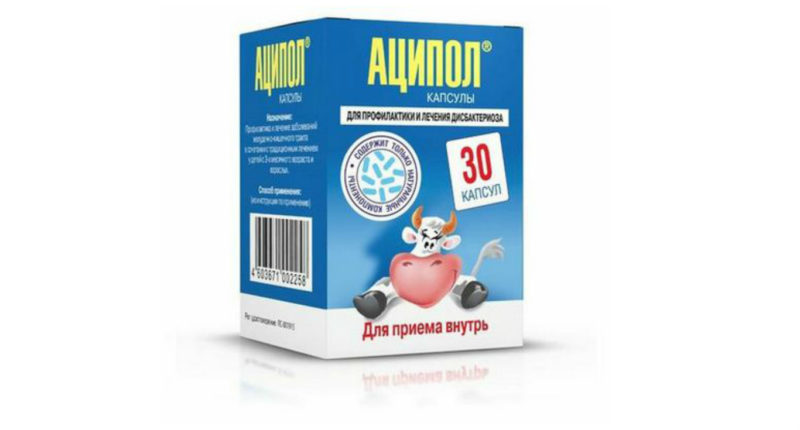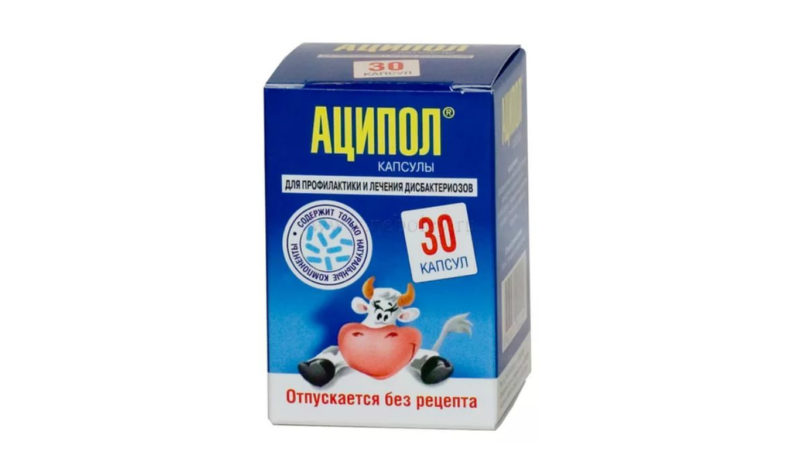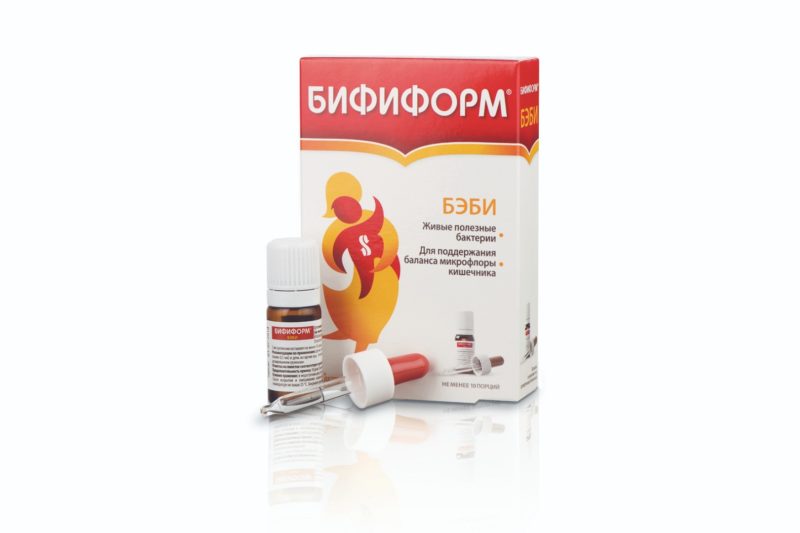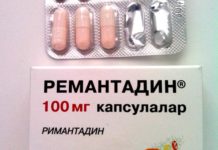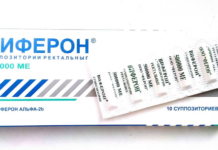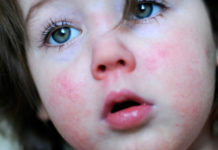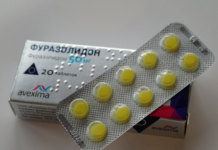The drug is useful for the intestinal flora, weakens or kills pathogenic bacteria. The instructions for the use of "Acipol" for children indicate that this multifactorial therapeutic agent eliminates diarrhea and increases the immunological status of the body. The effect of the probiotic enhances the second component - the prebiotic.
Material Content:
- 1 Description of release forms for children and their composition
- 2 Pharmacological action, pharmacodynamics and pharmacokinetics
- 3 At what age can Acipol be given to a child
- 4 Indications for use of the drug
- 5 Instructions for use and dosage for children
- 6 Contraindications, side effects and overdose
- 7 Probiotic Analogs
Description of release forms for children and their composition
Acipol has been produced in Russia since 2006 in the form of capsules. Under the same brand, drops and suspension are produced, which are not complete analogues. Dosage forms, dosages of active ingredients, excipients in the composition of the drugs differ.
- Drops "Acipol Kid" for children produced in the form of an oil suspension. This is a two-component probiotic: the dropper bottle contains lactobacillus and bifidobacteria lyophilisate (Lactobacillus rhamnosus + Bifidobacterium longum). Fillers: sunflower oil, alpha-tocopherol acetate, silicon dioxide. One serving of the drug is 5 drops (0.25 ml).
- Acipol capsules under a gelatin shell contain a creamy powder that smells of sour milk. These are acidophilic lactobacilli and kefir fungus polysaccharides (genus Saccharomyces), specially grown and lyophilized (dried). The amount of probiotic in 1 capsule is 107 CFU, the weight of the prebiotic is 400 mg.
Pharmacological action, pharmacodynamics and pharmacokinetics
Lacto- and bifidobacteria form the basis of the intestinal microbiota in healthy children.From the moment of birth, an individual qualitative and quantitative composition of microorganisms is formed that is characteristic of each person. The microflora of the gastrointestinal tract throughout life is affected by external and internal factors.
Probiotics preserve and restore the ratio of microorganisms in case of balance changes.
Live acidophilic lactobacilli create active colonies on the intestinal mucosa. Lactobacilli produce lactic acid, change the pH. As a result, adverse conditions arise for bacteria (staphylococci, salmonella, etc.) that are sensitive to indicators of acidity of the medium.
"Acipol Kid" contains lactobacilli and bifidobacteria. They reduce the activity and number of pathogenic and opportunistic microbes. Probiotics in infancy contribute to the formation of the immunological barrier, its restoration in children after various diseases.
Lactobacilli in the composition of the drops of "Acipol Kid" synthesize substances that inhibit the growth of colonies of pathogens. Lactic acid is needed for the development of the second component of the probiotic - bifidobacteria. The latter are actively involved in the processes of digestion and absorption, in the synthesis of certain vitamins, and stimulate intestinal motility.
"Acipol Kid" does not contain lactose, in addition, lactobacilli can decompose this and other disaccharides. The drug is prescribed for children with a deficiency of the lactase enzyme. Probiotic helps to normalize microflora and the prevention of allergic conditions.
"Acipol" in capsules contains a probiotic and a prebiotic, is an eubiotic. The differences between the components are significant. Probiotics are beneficial microorganisms typical of intestinal microflora. Prebiotics - a substrate that bacteria process to produce food and energy, creating stable colonies.
Taking a probiotic helps prevent digestive disorders, dysbiosis, malfunctions of the immune system, and allergies.
“Good” bacteria may die in the stomach under the influence of strong stomach acid, or they will not “take root” in the intestines. Useful microorganisms experiencing the negative effects of pathogens inhabiting the intestines do not create sufficiently stable colonies, are excreted with stool.
At what age can Acipol be given to a child
Infants from the first weeks of life are prescribed the drug in drops. Probiotic capsules can be taken for children older than 3 years. Toddlers do not know how or do not want to swallow hard pills. If the child is older than 3 months, then breaking the shell, the use of its contents with liquid is allowed. A little boiled water or milk is added to the powder, and a small patient is given a drink.
Indications for use of the drug
A probiotic in most cases is prescribed for dysbiosis (dysbiosis). The cause of the imbalance in the intestinal microflora is most often infections, gastrointestinal pathologies, poor nutrition, the use of contaminated food and water, and some medications.
You can take "Acipol" for children with the following diseases and conditions:
- dysbiosis resulting from infection with salmonella and other pathogens of acute intestinal infections (AEI);
- enterocolitis and colitis of infectious and non-infectious etiology;
- recurrent and chronic respiratory diseases;
- atopic dermatitis and other allergic conditions;
- increased susceptibility to pathogens;
- diarrhea of various origins;
- after antibiotic therapy;
- intestinal colic.
Dysbacteriosis in newborns and infants is usually combined with weight loss. Such conditions may be consequences of antibiotic therapy. “Acipol” is prescribed for infants in drops. During pregnancy and lactation, a woman can take Acipol in the form of capsules or suspensions.
Instructions for use and dosage for children
"Acipol", regardless of the dosage form, is prescribed inside half an hour before meals. Toddlers take probiotics in liquid form.According to the instructions for use, the dropper bottle "Acipol Kid" should be thoroughly shaken before each use.
An infant is given 5 drops per day with a small amount of breast milk or a mixture in a bottle. The same amount of the drug is prescribed for children under 3 years. Mix with warm (not hot) milk. Do not add probiotic to food.
Duration of therapy or prevention:
- chronic dysbiosis - from 10 to 15 days (repeated course after 1 month);
- dysbiosis after antibiotic therapy - from 10 to 15 days;
- diarrhea, OKI - from 5 to 8 days.
A probiotic in the form of a powder under the shell better retains viability.
Capsules are recommended to be swallowed without chewing, washed down with water. The shell protects the contents from being destroyed by stomach acid. The active substance is released in the intestine. You can open the shell, mix the powder with warm milk or boiled water, cooled to 37 ° C. Then the resulting suspension is given to the child.
Dosage for babies from 3 months to 3 years - the contents of 1 capsule 2 or 3 times a day. A child over 3 years old is given 1 pc. 3 or 4 times a day. Open the capsule and mix the contents with water immediately before taking the product.
Contraindications, side effects and overdose
"Acipol" in any dosage form is not prescribed for hypersensitivity to the main and / or any auxiliary components in the composition. The contents of the capsules are not given to a child younger than 3 months.
Probiotic in recommended doses does not cause side effects. However, individual negative reactions are possible: itching, skin rash, from the gastrointestinal tract - constipation or diarrhea. Cases of overdose are not known.
Probiotic Analogs
Suspension "Acipol Active" is a concentrate of the active substance in bottles with liquid filler (5 or 10 ml). This is a dietary supplement intended for adults. In addition to the probiotic, namely, lyophilized lactobacilli and bifidobacteria, the composition of the drug includes the prebiotic inulin and the trace element zinc. The finished suspension has a pleasant pear taste. Shake the bottle vigorously before use.
Partial analogues in the composition of the Acipol Kid drops are the single preparations Lactobacterin and Bifidumbacterin. These probiotics are available in the form of powders for the preparation of a suspension for oral administration in intestinal diseases. They differ from more modern drugs at a low price (from 80 to 150 rubles).
It is better for the child to give probiotics intended for children:
- Baby Beefform, Baby, or Kids.
- "Rotaby Baby."
- "Maxilac Baby."
- Hilak forte.
- "Baby Yogurt."
- "Yogulact."
The list includes products that contain several types of probiotic microorganisms. Often the composition is supplemented with a prebiotic. In this case, the drug is syn- or eubiotic. Method of release: drops, powder in sachets, capsules. The cost of eubiotics, in comparison with monocomponent preparations, is higher (from 200 to 500 rubles).
It’s hard to determine which probiotic is better. It often happens that due to improper storage or for other reasons, the content of microorganisms in the preparation is lower than indicated in the instructions. In addition, some strains do not stay or live for a short time in the intestines of a particular person. One of the recommendations of specialists concerns the duration of treatment. The course of application of pro- and eubiotics, after consultation with a doctor, can be increased to 1 month.


